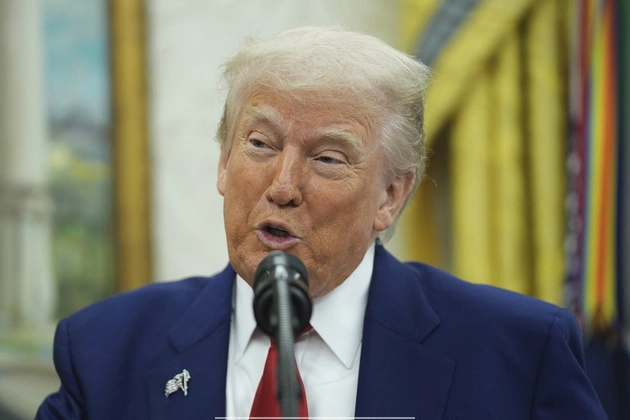
Trump’s Two-Week Deadlines
President Donald Trump has given Russian President Vladimir Putin a deadline of “two weeks.” Again.
Asked on Wednesday whether he believes Putin really wants to end the war in Ukraine, Trump said he’s still mulling it over, promising a determination soon.
”I’ll let you know in about two weeks,” Trump said. “We’re going to find out whether or not he’s tapping us along or not. And if he is, we’ll respond a little bit differently.”
It was that rare case where a politician’s well-worn evasion to a pointed question was quite striking — because when it comes to deciding on Putin, Trump has been giving the same “two weeks” timetable for more than two months. In so doing, he is avoiding facing up to the reality that he has not been able to quickly end the war in Ukraine, as he promised he’d do during last year’s campaign — and repeatedly putting off the question of how to deal with an autocrat who has befuddled a succession of American presidents.
Stalled Peace Talks and Frustration
White House press secretary Karoline Leavitt said on Thursday the possibility of direct talks between Ukraine and Russia in Istanbul next week is why Trump is allowing additional time before considering a change in strategy.
“We believe that meeting is going to take place. That is a meeting the president encouraged and urged, for these two sides to come together and negotiate directly,” Leavitt said. “Hopefully, next week, it will move the ball forward.”
Trump has grown increasingly frustrated with the Russian leader snubbing his peacemaking efforts by amping up attacks on Ukraine. He has tried, without success, to entice Putin into talks with promises of future deals and occasional pleas on social media, a carrot-heavy approach that’s been a sharp contrast to his stick-first treatment of Ukrainian President Volodymyr Zelenskyy. And he is wary of greenlighting a secondary sanctions bill backed by a bipartisan Senate majority, unsure it would be enough to force Putin into peace talks and nervous about foreclosing any future resetting of the U.S.-Russia relationship.
Internal Struggles and External Pressures
“It’s very clear there is something holding him back from actually putting more pressure on Putin,” said one European official granted anonymity because they are not authorized to speak publicly. “He may want the reset with Russia most of all, more than peace. If he just wants to get the war ended so he can do these deals [with Putin], then he may be weighing the cost of poisoning their potential relationship.”
But, at least outwardly, Trump has been suggesting for months that an inflection point is just a fortnight away.
On April 24, Trump deflected a question about continued aid to Ukraine, telling a reporter they could “ask that question in two weeks.”
When asked three days later on April 27 if he trusted Putin, Trump responded: “We’ll let you know in about two weeks.”
More than two weeks after that, when he was asked aboard Air Force One whether he had made a determination as to whether Putin was, as he had put it in a social media post, “tapping him along,” Trump said he was on the cusp of deciding.
“I’ll let you know in a week,” he said.
And on May 19, when asked if Ukraine was doing enough to allow the Trump-led negotiations to succeed, he was again undecided.
“I’d rather tell you in about two weeks from now because I can’t say yes or no,” he said.











